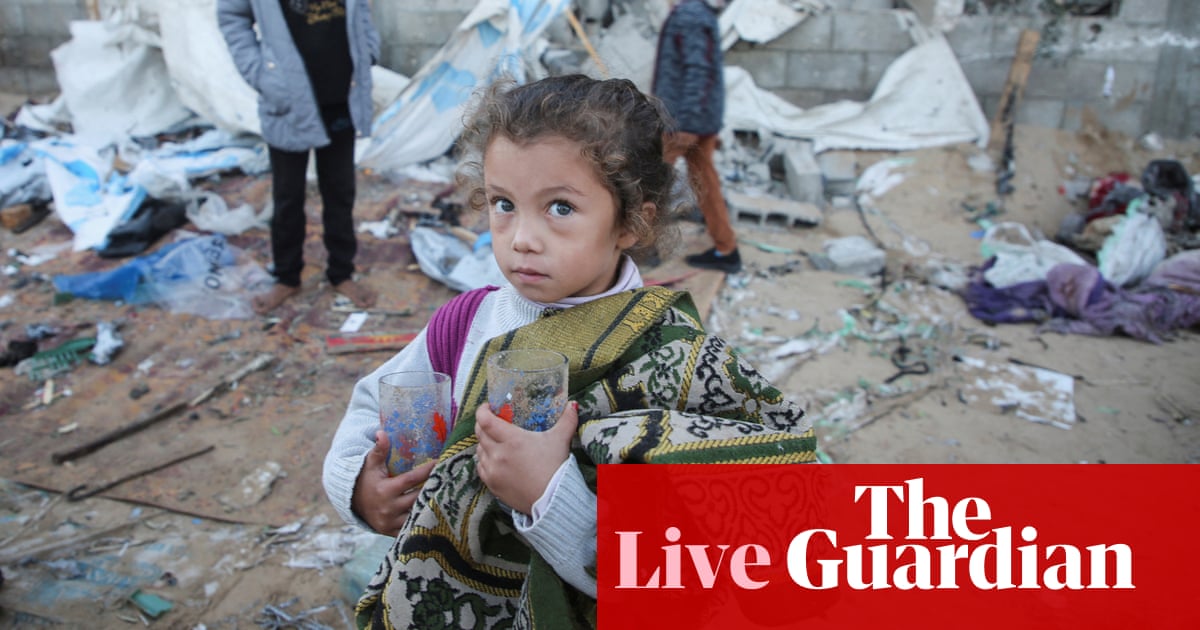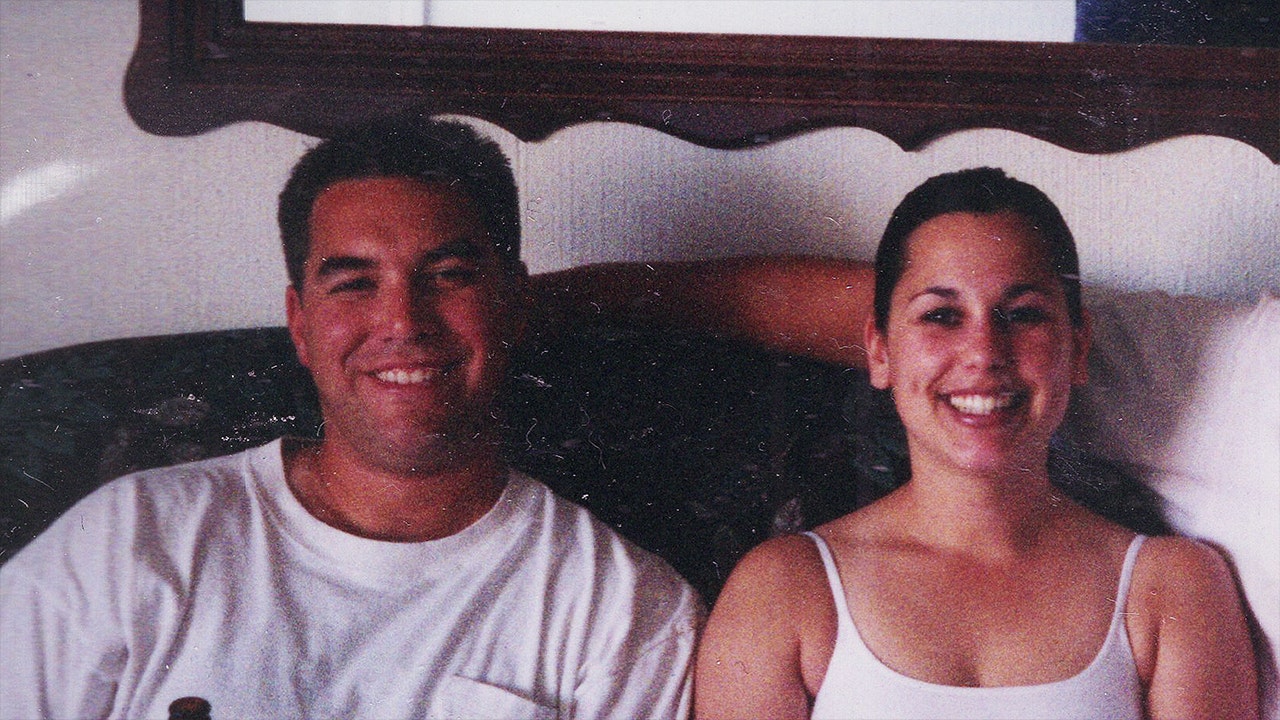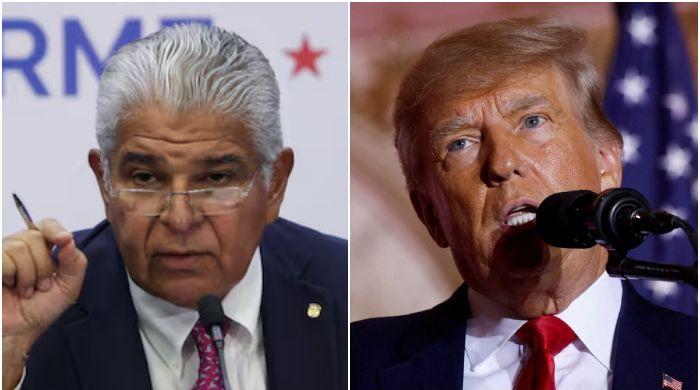IDF issues more forced evacuation orders in Gaza despite increasing hope of ceasefire
The Israeli military has ordered another evacuation in central Gaza, even as Israel and Hamas appear to inch closer to a ceasefire agreement.
“This is an advance warning ahead of an offensive,” Israeli military spokesperson Avichay Adraee posted on X. The order included four residential block areas in the urban refugee camp of Bureij, where Adraee claimed that Palestinian militants fired rockets toward Israel.
He asked the residents to move to a so-called “humanitarian zone” in the al-Muwasi area, which itself has been targeted by deadly Israeli airstrikes and is reportedly overcrowded.
The Israeli media have issued frequent evacuation orders for different parts of Gaza throughout the war, displacing more than 90% of the population, most of them multiple times. There is nowhere safe for Palestinian people in Gaza to flee Israeli bombardments, international organisations have said.
Key events
Summary
Here is a wrap-up of the day’s key events:
-
The visiting UN humanitarian chief Tom Fletcher told Agence France-Presse that there is a need for a significant aid boost across Syria after the ousting of Bashar al-Assad. “Across the country, the needs are huge. Seven in 10 people are needing support right now,” Fletcher said, adding, “I want to scale up massively international support, but that now depends on donors. The Syria fund has been historically, shamefully underfunded and now there is this opportunity.”
-
Turkey’s president Recep Tayyip Erdoğan has said his country and Lebanon would work together on Syria after the overthrow of former Syrian president Bashar al-Assad earlier this month. “A new era has now begun in Syria. We agree that we must act together as two important neighbours of Syria,” Erdoğan told a news conference, alongside Lebanese caretaker prime minister Najib Mikati.
-
The Israeli military has ordered another evacuation in central Gaza, even as Israel and Hamas appear to inch closer to a ceasefire agreement. “This is an advance warning ahead of an offensive,” Israeli military spokesperson Avichay Adraee posted on X. The order included four residential block areas in the urban refugee camp of Bureij, where Adraee claimed that Palestinian militants fired rockets toward Israel.
-
UN special envoy Geir Pedersen has called for “free and fair elections” in Syria and urged humanitarian assistance, AFP reports. Addressing reporters at the end of a visit to Damascus, Pedersen said “there is a lot of hope that we can now see the beginning of a new Syria”, which he expressed hope would also include a “political solution” in the Kurdish-held northeast.
-
The US, joined by Arab mediators, is seeking to conclude a long-negotiated ceasefire agreement between Israel and Hamas. A Palestinian official told Reuters earlier today that mediators had narrowed gaps on most of the agreement’s clauses. He said Israel, however, had introduced conditions which Hamas rejected but would not elaborate.
-
At least 45,097 Palestinian people have been killed and 107,244 injured in Israeli airstrikes on Gaza since 7 October 2023, the Gaza health ministry said. Of those, 38 Palestinians were killed and 203 injured in the latest 24-hour reporting period, the ministry said.
The Syrian war monitor Syrian Observatory for Human Rights said that 21 pro-Turkey fighters were killed on Wednesday following their attack on a Kurdish-held position near a flashpoint northern town, Agence France-Presse reports.
“At least 21 members of pro-Turkey factions were killed and others wounded by fire from the Manbij Military Council after pro-Turkey factions attacked” a position at the Tishreen Dam, approximately 25 kilometers from Manbij, according to SOHR.
The visiting UN humanitarian chief Tom Fletcher told Agence France-Presse that there is a need for a significant aid boost across Syria after the ousting of Bashar al-Assad.
“Across the country, the needs are huge. Seven in 10 people are needing support right now,” Fletcher said, adding, “I want to scale up massively international support, but that now depends on donors. The Syria fund has been historically, shamefully underfunded and now there is this opportunity.”
He also said, “The Syrian people are trying to come home when it’s safe to do so, to rebuild their country, to rebuild their communities and their lives… We have to get behind them and to respond to this moment of hope. And if we don’t do that quickly, then I fear that this window will close.”
Fletcher also called for the “strongest possible reassurances” from Syria’s new administration that aid workers would be granted access across the country.
“We need unhindered, unfettered access to the people that we’re here to serve. We need the crossings open so we can get massive amounts of aid through… We need to ensure that humanitarian workers can go where they need to go without restriction, with protection,” he said.
France is working to find an arrangement between Turkey and Kurds in northeastern Syria, its foreign minister said on Wednesday, adding that the Kurds had to be part of any political transition process. “We are convinced that it is possible to find an arrangement that satisfies the interests of everyone. We are working on it,” Jean-Noel Barrot said.
A new era has begun in Syria, Turkish leader says
Turkey’s President Recep Tayyip Erdoğan has said his country and Lebanon would work together on Syria after the overthrow of former Syrian president Bashar al-Assad earlier this month.
“A new era has now begun in Syria. We agree that we must act together as two important neighbours of Syria,” Erdoğan told a news conference, alongside Lebanese caretaker prime minister Najib Mikati.
“The stability of Syria means the stability of the region,” he said, adding that reconstruction of Syria on their borders would be their priority, as the Syrian interim leadership look to rebuild infrastructure after 14 years of conflict and crippling sanctions.
Erdogan said yesterday that he expected the EU to support the return home of Syrians who left the country during the civil war. Millions of Syrians fled to Turkey to seek refuge, with the majority living in Istanbul, Gaziantep or Sanliurfa. Lebanon is also home to a large number of Syrian refugees.
To rebuild Syria, Erdoğan told journalists earlier today: “This is a critical period in which we need to act with unity, solidarity and mutual reconciliation.” The toppling of Assad has vindicated Recep Tayyip Erdoğan’s approach on Syria at home in Turkey, granted Ankara new opportunities in a power struggle across Kurdish areas in the north-east and afforded it fresh influence as Syria rebuilds, writes my colleague Ruth Michaelson in this analysis piece about how the Turkish leader’s balancing act in Syria has seeminly paid off for now.
The US state department is facing a new lawsuit brought by Palestinians and Palestinian Americans accusing the agency of deliberately circumventing a decades-old US human rights law to continue funding Israeli military units accused of widespread atrocities in the occupied Palestinian territories.
The lawsuit, which was filed on Tuesday, marks the first time that victims of alleged human rights abuses are challenging the state department’s failure to ever sanction an Israeli security unit under the Leahy Law, a 1990s-era law that prohibits US military assistance to forces credibly implicated in gross human rights violations.
The plaintiffs include Amal Gaza, a pseudonym for a mathematics teacher from Gaza who has lost 20 family members; Shawan Jabarin, the director of the Palestinian human rights group Al-Haq, who endured six years of arbitrary detention in the West Bank; and Ahmed Moor, a Palestinian American with relatives in Gaza who have been repeatedly displaced by the ongoing Israeli offensive. (Moor has written opinion pieces for the Guardian.) Along with two other plaintiffs, they are demanding judicial intervention to force the US to comply with the law.
You can read the full story by my colleagues, Joseph Gedeon and Stephanie Kirchgaessner, here:
IDF issues more forced evacuation orders in Gaza despite increasing hope of ceasefire
The Israeli military has ordered another evacuation in central Gaza, even as Israel and Hamas appear to inch closer to a ceasefire agreement.
“This is an advance warning ahead of an offensive,” Israeli military spokesperson Avichay Adraee posted on X. The order included four residential block areas in the urban refugee camp of Bureij, where Adraee claimed that Palestinian militants fired rockets toward Israel.
He asked the residents to move to a so-called “humanitarian zone” in the al-Muwasi area, which itself has been targeted by deadly Israeli airstrikes and is reportedly overcrowded.
The Israeli media have issued frequent evacuation orders for different parts of Gaza throughout the war, displacing more than 90% of the population, most of them multiple times. There is nowhere safe for Palestinian people in Gaza to flee Israeli bombardments, international organisations have said.
The Israeli parliament decided in late October to pass a law banning the UN aid agency for Palestinian refugees, Unrwa, from operating in the country. Unrwa said the new laws – due to come into effect within the next month – will cause the supply chain of aid to Gaza to “fall apart”, excepting an already dire humanitarian crisis, with widespread shortages of food, medicine and clean water across the Strip.
The agency said that a threatened Israeli ban on Unrwa operations in Gaza and the occupied West Bank would not impact the legal status of Palestinian refugees.
“If Unrwa were forced to shut down its schools, health centres, and all its services tomorrow – Palestine Refugees remain Palestine Refugees,” agency spokesperson Tamara Alrifai told Al Jazeera English.
Almost all of Gaza’s population of more than two million people are reliant on aid and services from Unrwa, which has provided aid, schooling, healthcare and assistance across the Palestinian territories and to Palestinian refugees elsewhere for more than seven decades. You can read more about the agency’s humanitarian activities and its deteriorating relationship with the Israeli government in this useful explainer on the bill that passed in October.
Iraq’s prime minister Mohammed Shia al-Sudani has discussed developments in Syria at a meeting with Saudi Crown Prince Mohammed bin Salman during a visit to Saudi Arabia, Sudani’s office said. Sudani emphasised “Iraq’s keenness on the unity of Syria, non-interference in internal affairs, and respect for the free will of the Syrians,” his office said.
Iraq, which is led by a coalition of mostly Shi’ite political parties and armed groups close to Iran, is a major player in Tehran’s so-called Axis of Resistance that includes Hamas in Gaza and Hezbollah, the Lebanese militant group. Iraq’s ruling coalition is often pulled in different directions, with some groups that fought alongside Bashar-al Assad in the past and have interests in Syria more partial to entering again, while other parties see such an intervention as destabilising.
UN special envoy Geir Pedersen has called for “free and fair elections” in Syria and urged humanitarian assistance, AFP reports.
Addressing reporters at the end of a visit to Damascus, Pedersen said “there is a lot of hope that we can now see the beginning of a new Syria”, which he expressed hope would also include a “political solution” in the Kurdish-held northeast.
The UN envoy called for “a new Syria that, in line with Security Council Resolution 2254, will adopt a new constitution… and that we will have free and fair elections when that time comes, after a transitional period.”
Resolution 2254, adopted in 2015 at the height of the civil war, set out a roadmap for a political settlement in Syria.
Pedersen emphasised the importance of a political transition that includes “the broadest range of the Syrian society and Syrian parties”.
He expressed hope that Syrians could rebuild their country and that “the process to end sanctions” imposed under the former government could begin.
He added:
We need immediate humanitarian assistance, but we also need to make sure that Syria can be rebuilt, that we can see economic recovery.
The White Helmets rescuers have discovered unidentified bodies and remains in a medicine warehouse in a Damascus suburb, a Syrian civil defence official has said.
An AFP video journalist at the scene said the warehouse strewn with medicine boxes was located just around 50 metres (yards) from the Sayyida Zeinab shrine, a revered site for Shiite Muslims.
White Helmets official Ammar al-Salmo said:
We received a report about the presence of bodies, bones and a foul smell at the site.
South Damascus’s Sayyida Zeinab suburb was a stronghold of pro-Iran fighters including Lebanon’s Hezbollah militant group before Islamist-led rebels took the capital on 8 December.
“In the warehouse, we found a refrigerated room containing decomposing corpses,” Salmo said, adding that some appeared to have died more than a year and a half earlier.
He said human bones were also scattered on the ground, estimating there were around 20 “victims”.
AFP saw men in white suits removing bodies and remains in black bags and placing them onto a truck.
In 2022, the Syrian Observatory for Human Rights monitor estimated that more than 100,000 people had died in prison, mostly due to torture, since the war began.
 Insights Daily World is your one-stop destination for discovering unbeatable discounts, trending deals, and the latest offers across various products. Stay informed with the newest updates, breaking news, and insightful deals, all designed to help you save and stay ahead
Insights Daily World is your one-stop destination for discovering unbeatable discounts, trending deals, and the latest offers across various products. Stay informed with the newest updates, breaking news, and insightful deals, all designed to help you save and stay ahead




